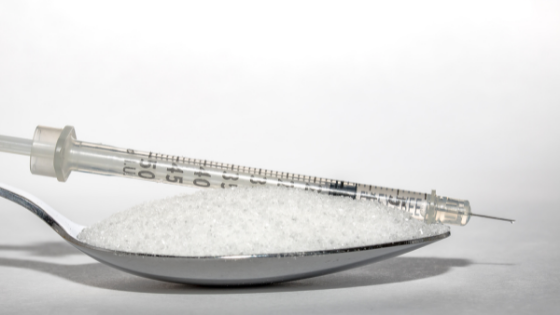There is absolutely no nutritional need or benefit that comes from eating added sugar. In fact, too much added sugar is one of the greatest threats to cardiovascular disease and obesity. Sugar has a confusing reputation when it comes to health. Sugar occurs naturally in all foods that contain carbohydrates, such as fruits and vegetables, grains, and dairy. Consuming whole foods that contain natural sugar is okay. Plant foods also have high amounts of fiber, essential minerals, and antioxidants, and dairy foods contain protein and calcium.
Your body digests these foods slowly, therefore the sugar in them offers a steady supply of energy to your cells. A high intake of fruits, vegetables, and whole grains also has been shown to reduce the risk of chronic diseases, such as diabetes, heart disease, and some cancers.
However, problems occur when you consume too much added sugar — sugar that food manufacturers add to products to increase flavor or extend shelf life.
In the American diet, the top sources of added sugar include soft drinks, fruit drinks, flavored yogurts, cereals, cookies, cakes, candy, and most processed foods. Added sugar is also included in items that you may not think of as sweetened, like soups, bread, cured meats, and ketchup. Limit these items in your diet! It’s destroying your health!
The average can of sugar-sweetened soda or fruit punch provides about 150 calories, almost all of them from sugar – usually high-fructose corn syrup. That’s the equivalent of 10 teaspoons of table sugar. If you were to drink just one can of a sugar-sweetened soft drink every day, and not cut back on calories elsewhere, you could gain up to 15 pounds over three years. That’s just one drink a day.
The effects of too much added sugar intake include high blood pressure, inflammation, weight gain, diabetes, and fatty liver disease – which are all linked to an increased risk for heart attack and stroke.
The American Heart Association recommends limiting added sugar to 9 teaspoons (36 grams) per day for most men and 6 teaspoons (25 grams) per day for most women and children over 2. Children with high levels of sugar intake are more likely to develop fatty liver disease, diabetes, heart disease and inflammatory conditions like asthma, acne, gout, obesity, and digestive issues.
- How much added sugar do you consume each day?
- Will you eliminate excessive added sugar from your diet?
- Will you take initiative to learn and begin consuming healthy alternatives for the sugar loaded items in your diet?
Live The Pursuit of Growth.





